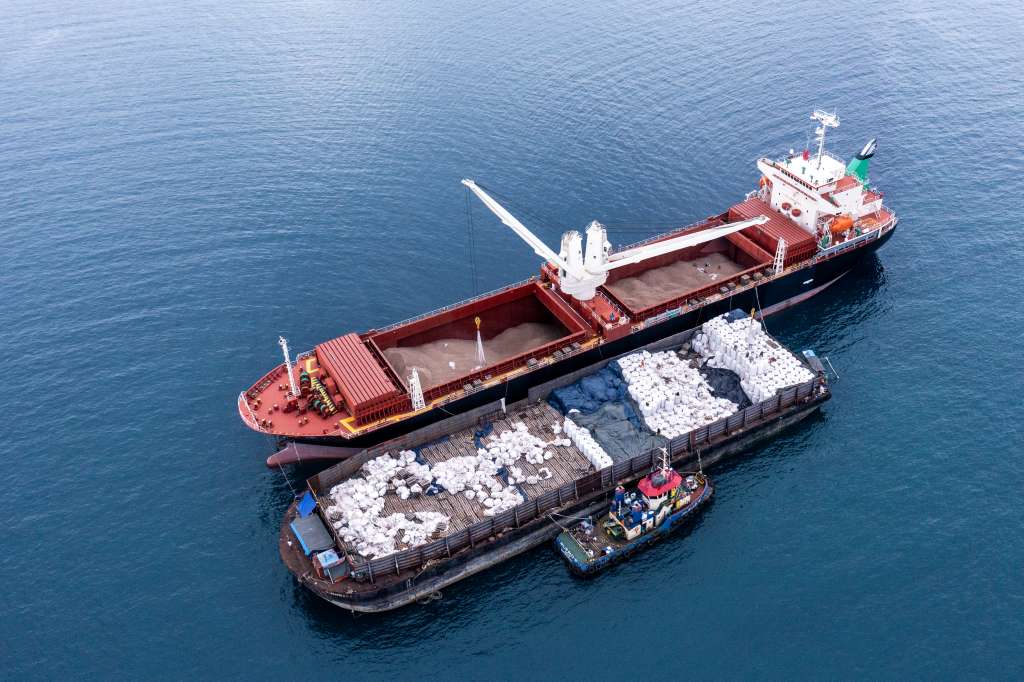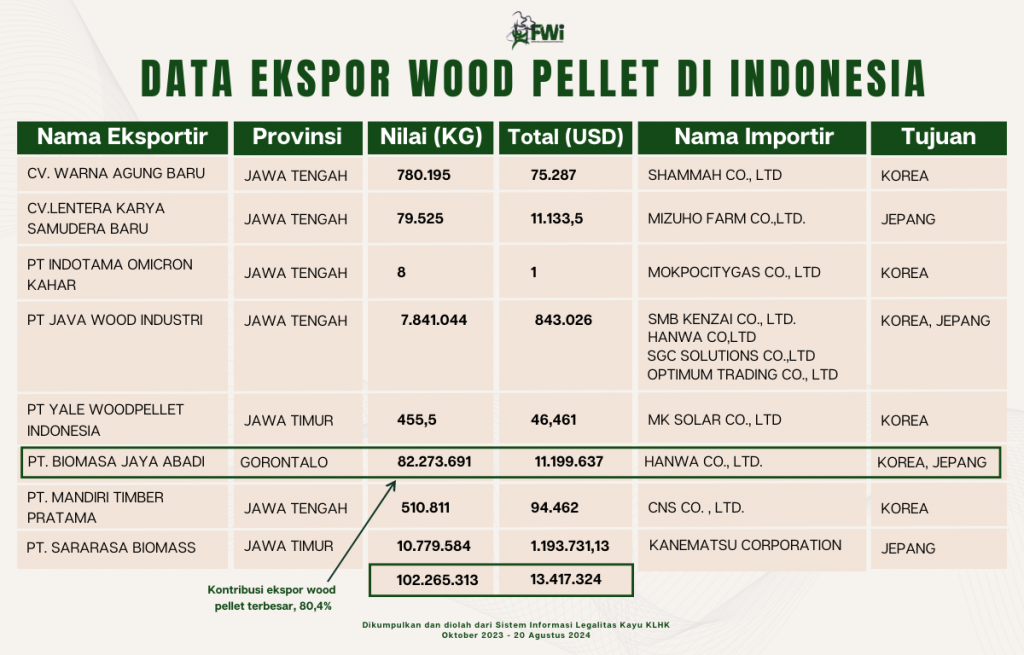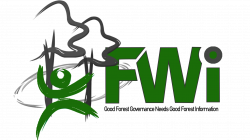
Wood pellet exports from Indonesia continue to be conducted in unlawful ways. The Coalition of Civil Society, #SaveGorontalo, highlights the illegal, unreported, and unregulated practices surrounding these exports in Gorontalo. Weak oversight and law enforcement are enabling the wood pellet business to damage natural resources, and even resulting in significant state losses.
During the period of October 2023 to August 2024, several Indonesian provinces were involved in wood pellet exports to Korea and Japan, with the total of 102.265.313 kg wood pellets valued for 13.417.324 USD. The provinces include Central Java, East Java, and Gorontalo.
From Central Java, wood pellets exports is noted to reach the worth of 1 million USD, weighing 9,2 million kg. Exporting companies, including CV. Lentera Karya Samudera, CV. Warna Agung Baru, PT Indotama Omicron Kahar, PT Java Wood Industri, and PT Mandiri Timber Pratama, which utilize wood species like Sengon, Meranti, and Teak. Importing companies identified are Mizuho Farm Co., Ltd., Shammah Co., Ltd., Mokpocitygas Co., Ltd., SMB Kenzai Co., Ltd., Hanwa Co., Ltd., Sgc Solutions Co., Ltd., Optimum Trading Co., Ltd., and CNS Co., Ltd., with Japan and Korea as the destination country.
In East Java, wood pellet exports are recorded at USD 1.2 million, with a weight of 10.8 million kg. The registered exporting companies are PT Yale Wood Pellet Indonesia and PT Sararasa Biomass, using various types of wood, including Mahogany (Swietenia macrophylla), White Meranti (Shorea bracteolata), Beach Merbau (Intsia bijuga), Rubber Wood (Hevea brasiliensis), Pine (Pinus merkusii), Sengon (Paraserianthes falcataria), Red Meranti, Agathis, Keruing, Bangkirai, and Merbau. They export to importing companies such as MK Solar Co., Ltd. and Kanematsu Corporation, targeting Japan and Korea. Both exporting companies have obtained VLK certification issued by PT Mutuagung Lestari and PT Inti Multima Sertifikasi.
In Gorontalo, wood pellet exports are the highest, reaching USD 11.199 million with a weight of 82.27 million kg. In this province, there is only one exporting company, PT Biomassa Jaya Abadi, which ships Jambu-jambu and Nyatoh wood pellets to the importing company Hanwa Co., Ltd., targeting South Korea and Japan. PT Biomassa Jaya Abadi has obtained VLK certification from PT Equality Indonesia. The company controls approximately 80.4% of Indonesia’s total wood pellet exports from October 2023 to August 20, 2024.

Illegal, Unreported, and Unregulated
One day before the celebration of Indonesia’s 79th Independence Day on Friday, August 16th, 2024, a patrol by the Indonesian Maritime Security Agency (Bakamla) aboard the Gajah Laut-404, commanded by Lt. Col. Bakamla Agus Tri Haryanto, successfully secured the MV Lakas, a vessel suspected of carrying illegal wood pellets in Gorontalo waters. The ship, flying the Philippine flag, had 17 crew members (ABK) on board. During the inspection, based on a written statement from Bakamla RI, it was found that the vessel lacked several important documents, such as the Certificate of Analysis, Certificate of Origin, and Certificate of Shipper Declaration, which are required for transporting hazardous goods according to the International Maritime Solid Bulk Cargoes (IMSBC) code. Despite these findings, the foreign vessel was eventually released in Bitung waters.
The Coalition team is investigating suspected unreported export activities. First, the Wood Legality Information System of the Ministry of Environment and Forestry (SILK KLHK) reported that from October 2023 to June 13, 2024, there were five recorded wood pellet exports from Gorontalo Province. In contrast, data from the Central Statistics Agency (BPS) reported eight wood pellet exports from the same province during the same period as SILK KLHK. According to SILK, Gorontalo Province exported 56,713 tons valued at USD 7.71 million. Meanwhile, BPS data shows wood pellet exports of 120,600.96 tons valued at USD 16,370,812. This discrepancy indicates a potential loss to the state due to export practices involving foreign vessels that have damaged natural forests in Gorontalo.
Another suspected fraud in this practice is that the companies registered as exporters in Gorontalo only report two types of natural wood: Nyatoh and Jambu-Jambu. Meanwhile, these companies are engaged in clear-cutting, which allows for the possibility of unreported and undocumented tree species. The consequence of concealing types of wood results in a loss to the state.
The practice of wood pellet export also involves transshipment (the transfer of wood pellets from one vessel to another in the middle of the sea) that does not comply with regulations. Transshipment took place from June 7 to 9, 2024. The Coalition team’s analysis indicates that this transshipment occurred outside the area approved for marine spatial utilization activities (PKKPRL) issued by the Ministry of Maritime Affairs and Fisheries (KKP) under number 15112110517500001. The validity period of this approval is only two years, having been issued on October 1, 2021. Additionally, holding the PKKPRL cannot be used as an excuse for transshipment. Moreover, the foreign vessel conducted loading and unloading activities within the Candidate Conservation Area in Pohuwato, Gorontalo. This location is also a fishing area for octopus for the Bajo Torosiaje community.

QUOTES
Anggi Prayoga (Campaigner of Forest Watch Indonesia) highlighted that the suspected illegal, unreported, and unregulated transshipment of wood pellet exports that has damaged Gorontalo’s natural forests must be stopped immediately. Law enforcement agencies should conduct a thorough audit. Deforestation to meet wood pellet export needs cannot be justified.
Amalya R.O (Bioenergy Campaign Manager, Trend Asia) stated that the Ministry of Energy and Mineral Resources (ESDM) and the Ministry of Environment and Forestry (KLHK) must audit wood pellet production activities that have led to deforestation, biodiversity loss, and conflicts with local communities. Additionally, the involvement of forestry conglomerates serving the wood pellet export market, while domestic needs alone reach 10.2 million tons, is concerning. The impacts we see in Gorontalo due to the demand for wood pellets will spread to various regions. The government must stop the wood biomass program and shift to promoting renewable energy based on the values and principles of a fair and sustainable energy transition.
Muhammad Ichwan from the Independent Forestry Monitoring Network (JPIK) called for stronger law enforcement against suspected violations in transshipment practices, including alleged corruption and data manipulation in exports. JPIK urges the Corruption Eradication Commission (KPK), KLHK’s Law Enforcement Division (GAKUM), the Attorney General’s Office, and other agencies to investigate these cases immediately. JPIK emphasizes the need for stricter audits and oversight to address violations and ensure environmental justice and sustainability.
Willem Pattinasarany, Chairman of the Indonesia Working Group on Forest Finance (IWGFF), revealed that transshipment practices are a strong indication of money laundering (TPPU) in the wood pellet export business in Gorontalo, which is suspected to be illegal, unreported, and unregulated (IUU). This method exploits loopholes in export oversight. Such practices lead to potential greater losses for the state.
Renal Husa, Facilitator of Network from Walhi Gorontalo, emphasized the need for strict law enforcement, especially against companies that lack transparency in their practices. Renal suggested a comprehensive environmental audit of wood pellet export activities. If the audit finds violations or forest damage resulting in material and non-material losses, the company’s license should be reviewed and possibly revoked. This step is essential to ensure responsible management of natural resources that benefits local communities.
Dr. Terri Repi, M.Si from the Institute for Human and Ecological Studies (Inhides), who is also an academic at Universitas Muhammadiyah Gorontalo, highlighted that wood pellet exports have damaged forests. According to her, this bioenergy project drastically alters ecosystems. This threatens the survival of many species, especially endemic species and those that require specific habitats. The bioenergy projects in Pohuwato pose a serious threat to the Popayato-Paguat landscape, which contains areas of high conservation value, not just storing two types of trees but a variety of species.
Dr. Abubakar Siddik Katili, M.Sc, a member of Japesda from the Center for Ecological Studies and Local Wisdom-Based Coastal Studies (PKEPKL) at Universitas Negeri Gorontalo, stated that forest damage in Pohuwato affects the health of coastal ecosystems. Wood pellet production activities upstream could contribute to nutrient cycle disruptions that significantly degrade downstream ecosystem quality.
Hasna – Jakarta (+62 857-2034-6154)
Renal Husa – Gorontalo (+62 8124-343-9013)
The Press Release document can be downloaded at the link below:



